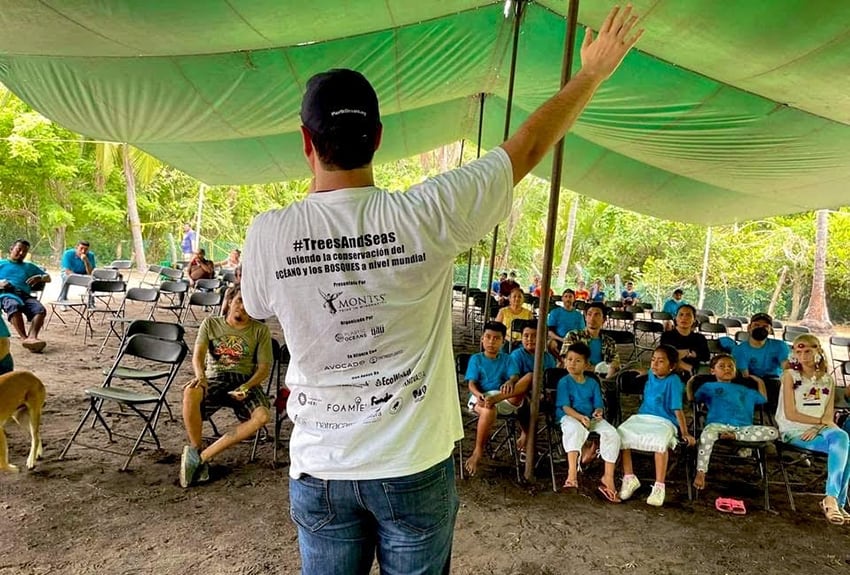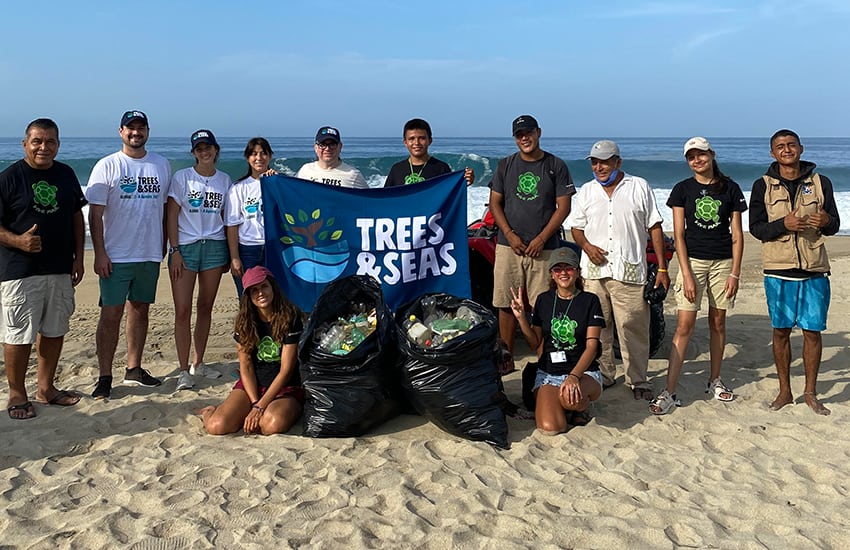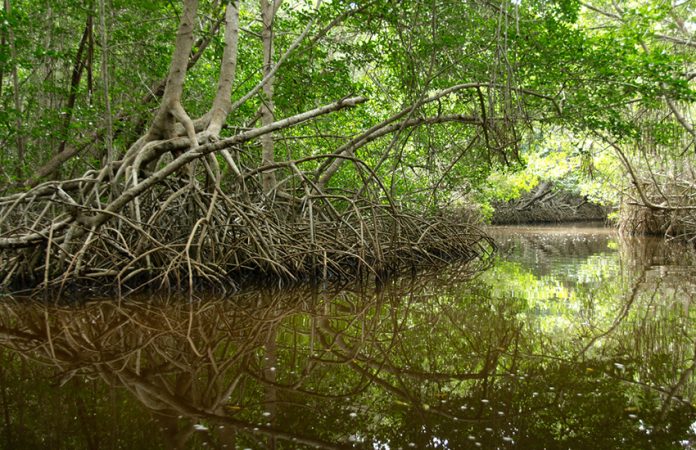This week, between August 2 and 8, Mexico will be at the forefront of the Plastic Oceans’ Trees & Seas international festival, celebrating the importance of forests and the oceans and the places where they intersect.
Building on Plastic Oceans’ BlueCommunities initiative, which strengthens local environmental action, the Trees & Seas festival will take place in more than 30 communities internationally, a number of them right here in Mexico.
This year, the primary hub for the event will be Chiloé Island, Chile; a UNESCO World Heritage Site in Patagonia. A number of satellite locations will also be holding events across the globe, including four in Mexico, making the nation one of the global forerunners for progressive community conservation in the program.
The inaugural year of the weeklong festival will see more than 100 beach and forest cleanups globally, more than 50 youth workshops and more than 20 panel discussions streamed via Zoom, plus the planting of more than 90,000 trees. This total includes 45,000 mangroves in Mexico, where there will be a significant drive to aid the restoration of this most remarkable of ecosystems through forest and coastal cleanups and educational workshops.
“We wanted to create awareness about the connection between ocean and forest conservation, which too often are thought of as separate entities that have nothing to do with each other,” says Salvador Ávila, executive director of Plastic Oceans Mexico. “At best, people see them as distantly related. There needs to be a shift in perspective toward viewing them as connected parts of a whole, so we created a global reforestation event in collaboration with semi-aquatic communities.”

The importance of conserving mangrove ecosystems in Mexico cannot be understated. To geographers, mangroves are known as “watershed terminal ecosystems,” meaning they are critical boundary points at which the land and the sea interact. They have functional characteristics that determine how human communities exist within them — for example, acting as natural boundaries against seaborne weather systems and filtering runoff from the land into the ocean.
As of 2017, official studies determined that more than 18,000 hectares of mangrove forest had been lost in Mexico as a result of infrastructure and urban and tourism development significantly compromising their ecological benefits. Yet, rising sea levels and increasingly extreme weather patterns as a result of climate change, expected to worsen over the coming years, mean that the restoration of mangrove ecosystems along the Mexican coastline is more important than ever.
On a broader level, the restoration of mangroves in Mexico also offers the opportunity to meet 2030 carbon reduction targets, set as a Nationally Determined Contribution (NDC) under the Paris Agreement.
Given that current government policies mean that Mexico is already failing to meet its 2020 pledge of a 30% reduction, it is essential that conservation work that encourages carbon sequestering is brought to the fore. Moreover, mangroves are key to the strengthening of coastal protection and the recovery of marine ecosystems.
Alongside the year-round work done by Plastic Oceans to conserve marine environments, the Trees & Seas festival will support workshops, webinars throughout the week and cleanups hosted by ecological groups of every variety.
In the Yucatán Peninsula, where the waterways are already a focal point for conversations around sustainable ecosystem management, participating organizations will be running a wide array of events, including a Snorkel4Trash in the Riviera Maya with the non-profit Saving Our Sharks; reforestations in Akumal, Playa del Carmen and Campeche and educational and cultural events at the latter location.

The promise of such wide-ranging engagement in the festival’s inaugural year speaks to the value of the existing work being done by the BlueCommunities of the Yucatán and to increasing public awareness about the oceans’ plight in the face of chemical runoff and oil spills, rising global temperatures and the 10 million tonnes of plastic waste that finds its way into ocean currents every year.
Nevertheless, Ávila is keen to share the importance of the community work already being done by the organizations across Mexico and the globe in raising awareness for the conservation of all kinds of environment: oceans, forests, parks and beyond.
“The willingness and enthusiasm of the organizations involved in this event really highlight the importance of coming together in our communities — as a global entity, no less — to raise awareness about the interconnection of ecosystems on our planet,” he said.
The Trees & Seas festival will build on the cornerstone of grassroots environmental activism: using people power to foster a healthier planet. Increasingly across the world, networks that have a real impact on the global environment are being built through this formation of relationships, where commitment to making a positive change becomes a driving force irrespective of creed, color or religion.
Against the often harrowing environmental news we consume daily, focusing on the amazing work being done by so many people on the front lines can perhaps be a shot in the arm for catalyzing our renewed efforts to combat ecosystem degradation, biodiversity loss and, of course, the ever-changing climate.
• For more information about the festival, including how to get involved, visit Plastic Oceans’ Trees & Seas festival web page.
Shannon Collins is an environment correspondent at Ninth Wave Global, an environmental organization and think tank. She writes from Campeche.
